A REFLECTION
A day in the life of prisoner 259/64 on Robben Island
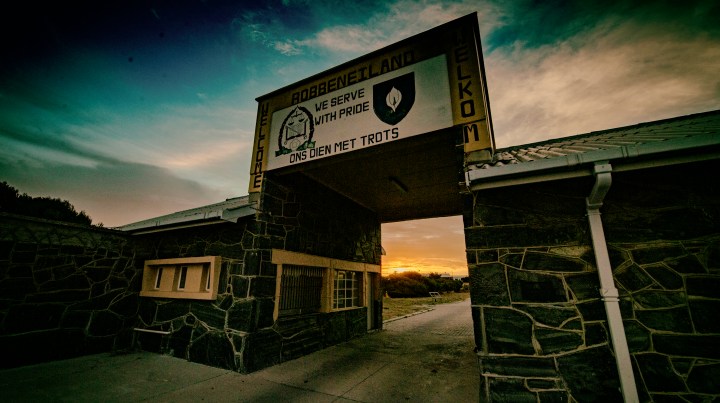
During a recent trip to Robben Island, I learnt about the startling concept of the island being the ‘midwife’ of democratic South Africa. I also became convinced that with such a rich history we can face the future with resolve and confidence.
I only heard about the children when I came off Robben Island. The children who were mentally incarcerated at Zonnebloem College in the 1860s, receiving the “finest English education”, while looking out over the strip of ocean to the island where their father and grandfather, Chief Maqoma, was physically incarcerated.
The children being intellectually bludgeoned into being Black Gentlemen as per Imperial decree, while Maqoma was being brutally subjugated. After all, the then-Governor George Grey did order “the submission of every Chief of consequence; or his disgrace if he were obdurate”… and Maqoma dared to be both.
The children being ordained as Christian missionaries in London, culturally emasculated lest they be troublemakers on account of their proud Xhosa lineage… who died of consumption soon after their return.
Their father killed in 1873 on the island and buried in an unknown grave. (Legend has it that his mighty ox, the speckled Jingqi, followed him from the Eastern Cape and died braving the waves in a valiant attempt to save him.)
Such was their sad fate but surely not their deserved destiny.
I was privileged to go to the island as part of a group led by Moss Ngoasheng, who himself served seven years there as a political prisoner. Declared an enemy of the apartheid state at the threatening age of 20, it was his first time back overnight and the idea was to give us as authentic an experience as possible of what it was actually like to be a prisoner.
To hear from the horse’s mouth about the weight of the shackles and solitude of confinement… the deafening rattle of the warden’s baton on the cell bars and the eerie stillness of a forever brightly lit, watch-less, time vacuum.
Albeit only for 25 hours. Not the 25 years that Wilton Mkwayi served, whose identity card I was issued with – prisoner 259/64. A veteran trade unionist and one of the first six members of Umkhonto weSizwe to be sent for military training – 25 hours vs. 25 years.
No parole… ever… no sentence reduction for good behaviour… ever. On the island, you served your full term. Finish and klaar.
And this is what I learnt.
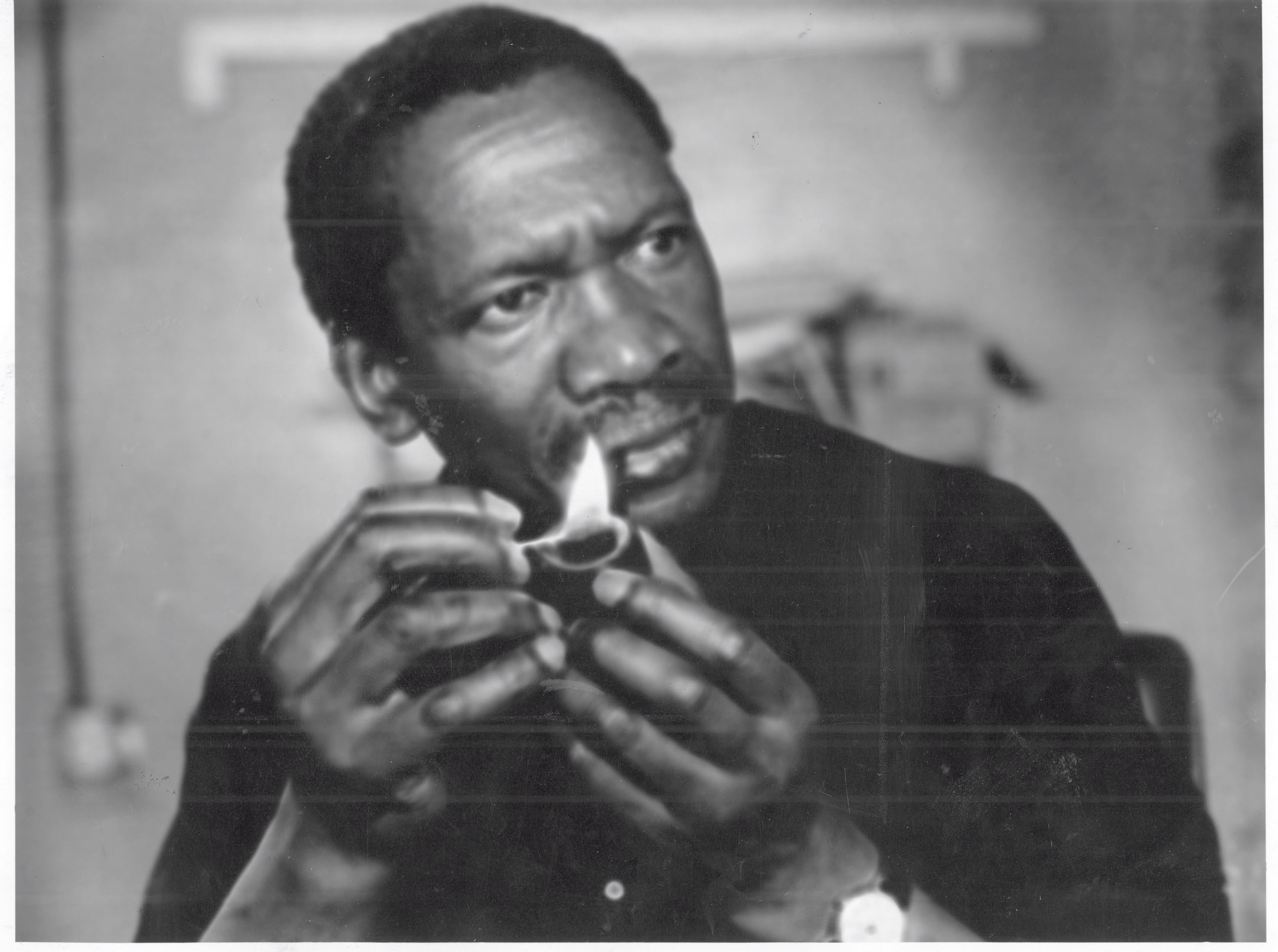
SOUTH AFRICA 1978: South African struggle hero Robert Sobukwe, who founded the Pan Africanist Congress in opposition to the apartheid regime. (Photo by Gallo Images/Sowetan)
I learned that Robert Sobukwe was not a terrorist but a brilliant, one-of-a-kind person, who penned the immortal sentence, “There is only one race, the human race”.
An Africanist stridently opposed to communism. A key reason for his split with the ANC to form the PAC.
Who defined Africanism in an inclusive sense. Defining ALL those who were and are committed to and vested in Africa and who put the well-being of her people first, to be an African. Think on that a second… how does that make you feel?
In truth a dignified, committed man, known for his enduring love of the people. An architect of the Action Movement in ’49 and the initiator of the anti-pass protests in pursuit of his people’s dignity, in the late Fifties and early Sixties.
Sobukwe’s sense of purpose and destiny was so threatening to the State that a special parliamentary Act was passed, the so-called Sobukwe clause. Solitary confinement on the island and banishment to Kimberley is how he spent the last 18 years of his life. Yet, even then, daring to have clandestine meetings with Steve Biko in the nascent days of the Black Consciousness Movement.
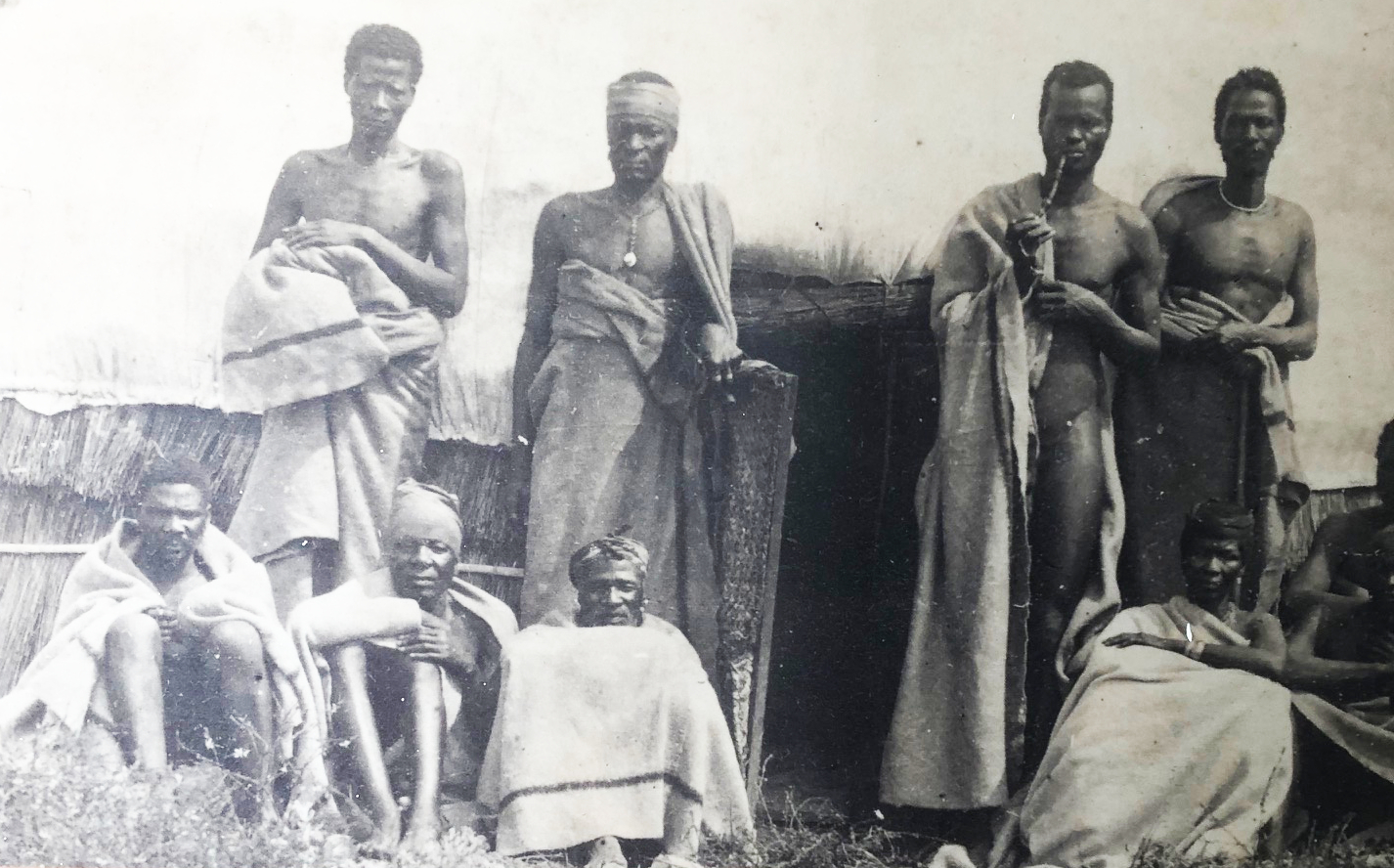
Photo courtesy of Robben Island Museum
A poignant illustration of the State’s realisation of the power of the mind and that beliefs are more potent than weapons. That is why he was silenced by the enforcers.
Now he lies buried in Graaff-Reinet and I look forward to the opportunity to pay homage to him.
I learned that Chief Maqoma and his fellow warriors were brave resisters. Men who fought the good fight for their right to live. The hero of the Battle of Waterkloof, in the shadow of the aptly named Mt Misery, during the 8th Frontier War. Branded “non-believers” because they did not heed the suicidal, cattle-slaughtering call of the 15-year-old prophetess, Nongqawuse.
And I wondered why we had not been taught more of our own history. Why we as Africans are taught so much about England/ France/ Italy/ WW1 and WW2. Surely more focus should first and foremost be placed on a deeper understanding of the furnace that forged us and the people who stoked it. After all, Smuts actually walked away from the country’s real challenge and it seems we learn a lot about him.
Why not more a more inclusive and representative history? One that talks more comprehensively to all of us?
This was in fact echoed by three young students who were with us on the trip. They were actually angry and frustrated at their lack of understanding about how their present had been shaped by the past. How could they possibly have a proper appreciation of who and what went before when so little was known to them? How then could they possibly be expected to strive to emulate their worthy predecessors? Born free, it seems, but into a historically contextual vacuum.
I learnt more about how and why Mandela said no to a visit proposed by the Transkei’s Kaiser Matanzima, the ingenious use of cooking pot number three to disseminate information, and was once again reminded of the miraculous stupidity of the decision to place all the so-called enemies of the State in one place. Instead of breaking them down, as was the intent, it did the reverse. It made them stronger. How ironic too that as prisoners they were allowed to educate themselves, taking degrees in Economics, Law and the like, while the youth of the country were subjected to the abhorrent ignominy of Bantu Education. And today we reap the whirlwind of this devastating crime against humanity in the form of mass poverty and joblessness. A ticking time-bomb which threatens to undo our country and for which there is no quick fix.
I learnt that squatting is a punishment worse than hell. Especially if you are in your senior years. Squatting, as in perching up on your toes with your buttocks on your calves. Ten minutes and I was toast. Try two hours!
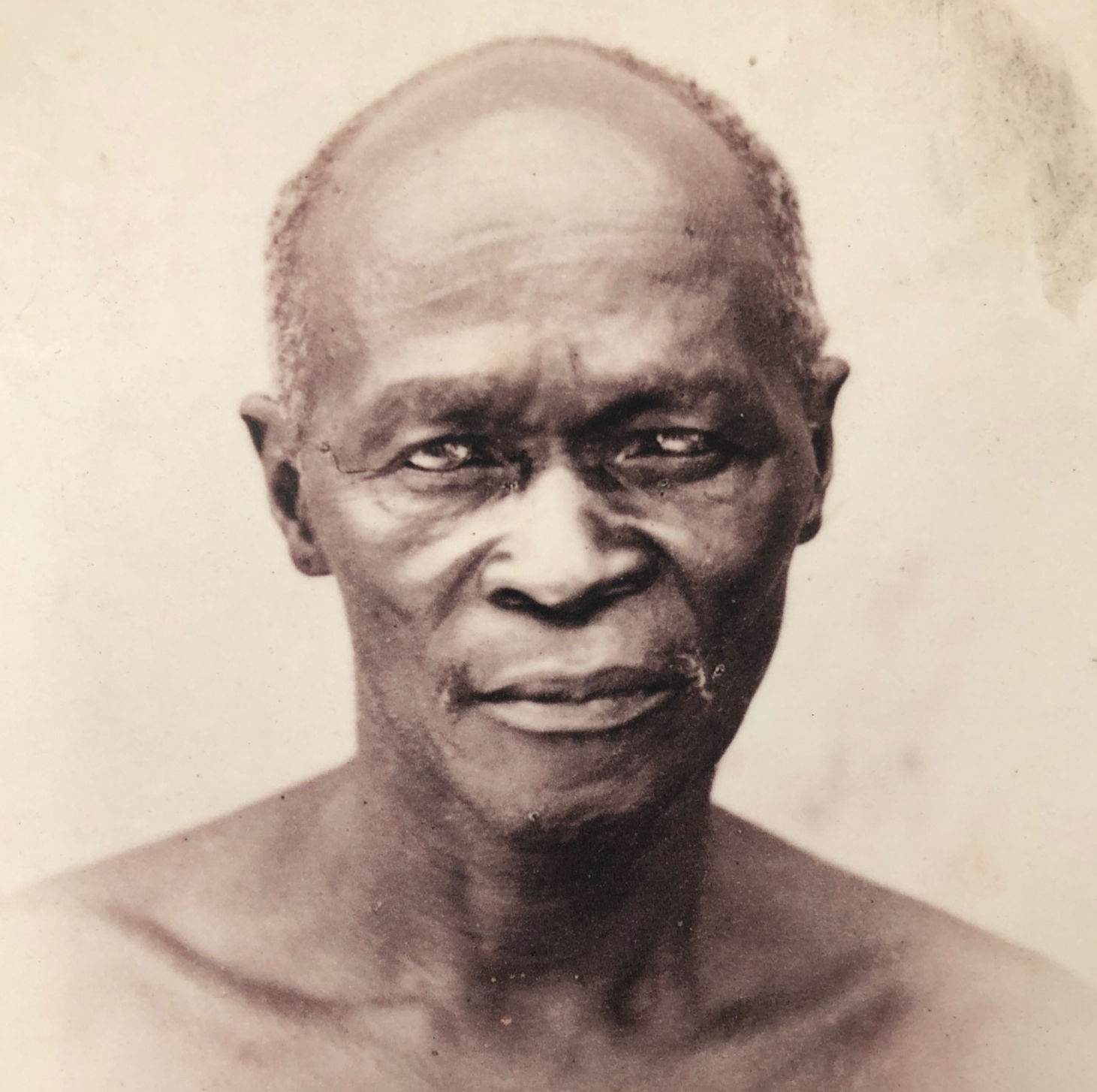
Chief Maqoma. Photo courtesy of Robben Island Museum
And I did not like being demeaned as a “bandiet”. In fact, I felt a stirring of my political conscience, first awakened decades ago watching the legendary John Kani and Winston Ntshona in Athol Fugard’s The Island. Seems a real visit was required to revive it.
I was reminded of the thought that seldom has there been more knowledge in the world as now… and yet so little wisdom. And I realised then that WISDOM only comes through testing ideas and scrutinising thoughts and principles. And that is what Mandela and his cohorts did. Day in and day out they debated, argued, honed, sharpened. In the end, it was wisdom that prevailed in the form of reconciliation, not revenge.
From Luvuyo Ndzuzo, our excellent “warden” and guide I learnt about the startling concept of Robben Island being the “midwife” of democratic South Africa. Think about that a second. Robben Island the midwife of our country.
I saw how Moss turned away when confronted by his past. How he approached the maximum security cell block with trepidation. Heard first-hand about the power of the censor’s pen which so crudely invaded poignant letters of longing between loved ones.
I met and conversed with Christo Brand, who was Mandela’s warden. A gentle man who managed to find a higher, humanitarian purpose in the way he treated prisoners. Who did not allow himself to be brutalised by a brutal system? What a rewarding life he now so deservedly leads.
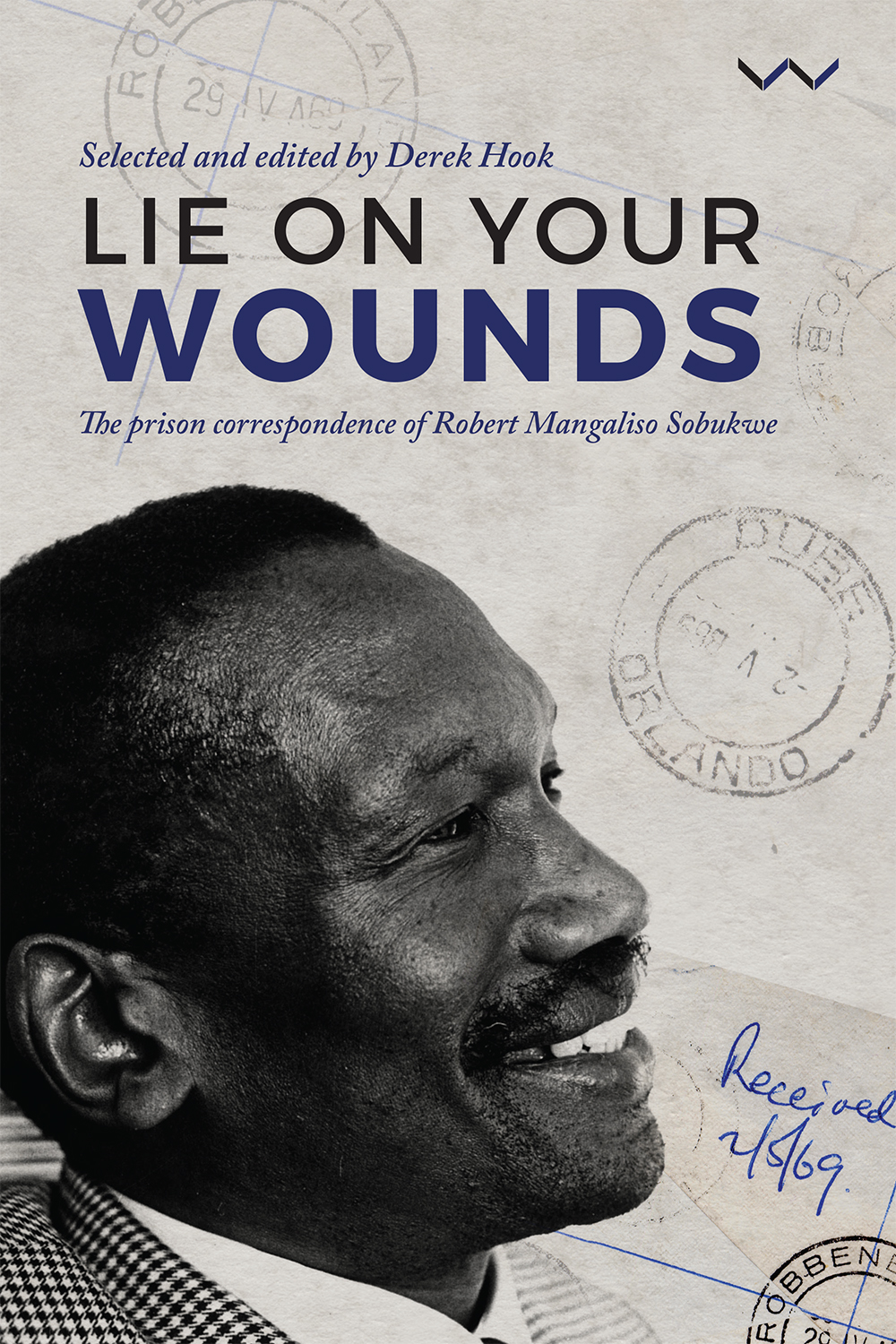
And what about the stubborn self-belief and pride of Andimba Toivo ya Toivo. A co-founder of Swapo and its predecessor the Ovamboland People’s Organisation. During his 16 years in prison he never accepted anything, in defiance of the State and the unshakeable belief that, as a Namibian, they had no rightful jurisdiction over him. No letters, no visits – except one. From his ageing mother and even then he had to be virtually tricked into meeting her.
I was moved beyond words that after 23 years Irene Mahlongo wed Wilton while he was still serving his sentence. For 23 years she watched and waited and loved.
Time and time again I was reminded of the saying that a principle is not a principle until it costs you something. In these and so many other cases, there could surely not be a more dramatic vindication of that truth.
And so I became convinced of the insight in Frankel’s teaching that it is those who have discovered their purpose who will endure, will survive and ultimately will thrive. These were they. Principled people with a steadfast purpose.
I also became convinced that with such a rich history we can face the future with resolve and confidence. But, and this is a big but, let us not for one second think that a worthy history will secure a worthy future. Principled, purposeful leadership in the past in no way guarantees the same in the future. The unscrupulous Zuma is surely a case in point. The Judas of his generation.
So let us honour this worthy history by ensuring that those who seek to shape our future are held to the same high, principled standards as those who went before. And let us as individuals strive to do the same.
How about we start the process by rethinking and reshaping Heritage Day?
As Africans, all, remember that there is only one race, the human race.
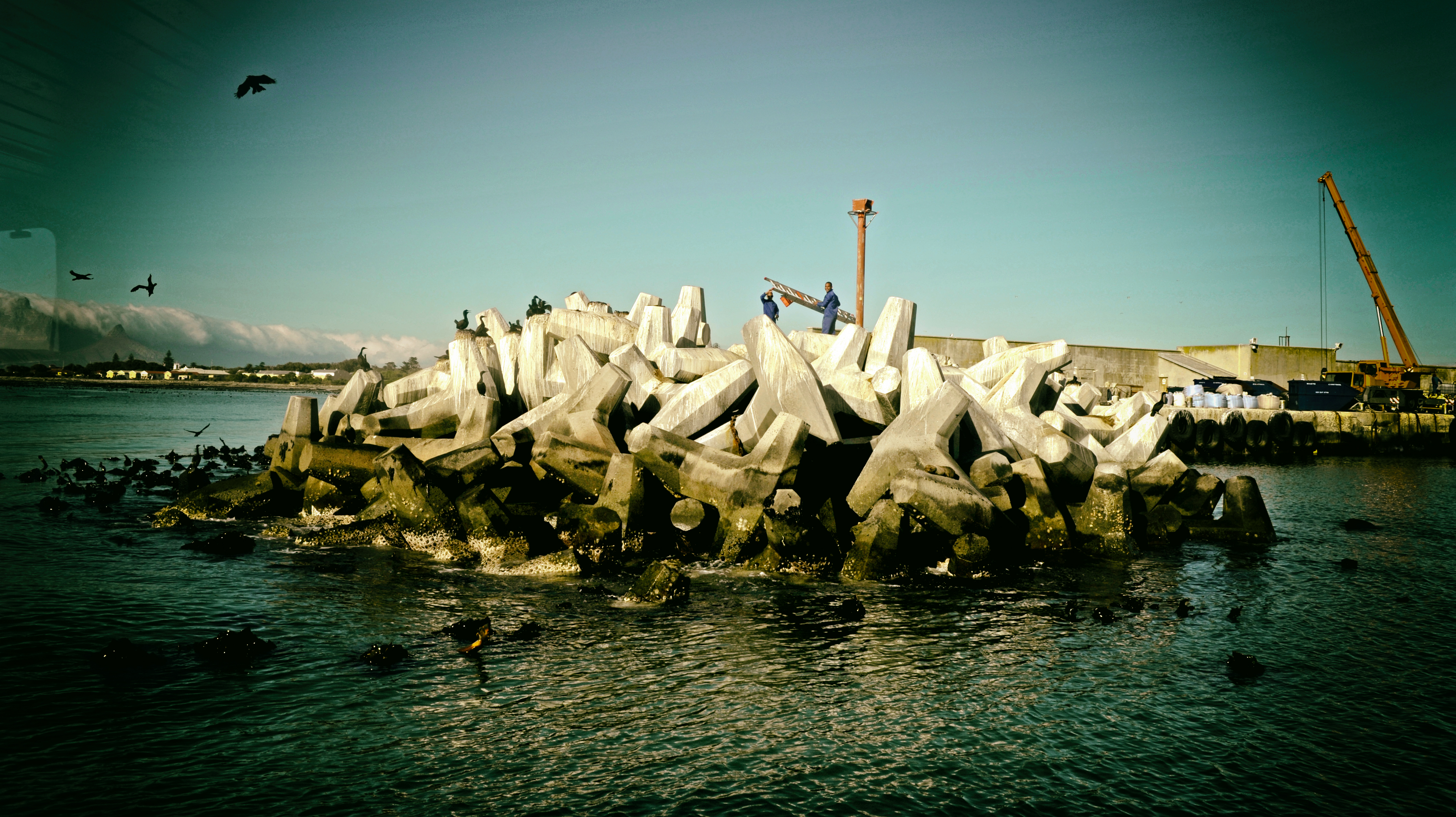
Views from a boat approaching Robben Island on April 22, 2015, in Cape Town, South Africa. (Photo by Gallo Images / Foto24 /Lerato Maduna)
In closing, I would like to express my sincere appreciation to Moss Ngoasheng for daring himself to go back in support of Education Africa; Paul Harris for his generosity of spirit and extending the invitation to me; James Urdang of Education Africa who put the “Day in the life of …” together; Robben Island Museum Education Department; Luvuyo Ndzuzo, our authentic warden, for sharing his knowledge of all those mentioned in the article, and Marguerite Poland for sharing her encyclopaedic knowledge of the Xhosa people and the Frontier Wars. DM
Derek Carstens was Brand Director of FirstRand and Marketing Head of the 2010 Fifa World Cup LOC, following which he became a game farmer in the Eastern Cape.


















 Become an Insider
Become an Insider